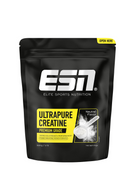Questions & answers about the ombudsman's office, the complaints procedure under the Supply Chain Due Diligence Act and the internet-based whistleblower system at The Quality Group GmbH and its subsidiaries ("TQGG")
- What is an ombudsman/complaints office (“whistleblower system”)?
In the course of combating violations of legal regulations and/or internal company compliance rules as well as violations of human rights and environmental due diligence obligations, TQGG has appointed an external lawyer as ombudsman and contact person for our whistleblower system. The ombudsman is available to all whistleblowers who would like to provide confidential information about irregularities at TQGG.
- Who can contact the whistleblower system?
Our whistleblower system, which is operated by our ombudsman, is generally available to anyone who can provide information about illegal behavior. This can be employees, customers or other third parties. We accept all information where you suspect a violation and which falls within the specified subject area.
- On which topics can tips be given?
The whistleblower system is available for reports of violations of laws and regulations as well as human rights and environmental risks and breaches of duty of care that affect our company, our business unit or our suppliers along the entire supply chain.
The topics of the reporting content include in particular the following:
- Corruption, money laundering, bribery, terrorist financing, violations of export controls
- Anti-competitive behaviour
- Violations of the Code of Conduct and other internal policies of TQGG (e.g. purchasing policies)
- Product safety
- Discrimination, bullying, fundamental rights
- Health, operational safety, occupational safety
- Personnel issues, including disregard for work instructions
- Data protection and information security breaches
- Antitrust violations
- EU issues within the meaning of the EU Whistleblower Directive, 2019/1937
- Violations of human rights and environmental due diligence obligations.
The whistleblower system is not intended for complaints relating to operational business. Information reported via the whistleblower system that concerns matters outside the defined subject area will be forwarded to the appropriate contact persons, subject to the consent of the whistleblower, or the appropriate contact persons will be named.
- How can tips be submitted?
TQGG:
Our employees can contact their supervisor, the Human Resources department, the General Counsel or other departments within the company at any time with any concerns.
Whistleblower system / Ombudsman :
Our employees, our business partners and other third parties also have access to our whistleblower system, which can be used to submit reports to our ombudsman. You can submit your reports by phone, post, email or in person.
Attorney Dr. Kathrin J. Niewiarra, Ombudsman
Philippistrasse 11
D-14059 Berlin
Phone: +49 (0) 30 / 4036750-17
TQGG@compliance-aid.com
The information can be submitted in German and English.
It is also possible to submit reports to the Ombudsman via our electronic whistleblower system in over 26 languages:
www.compliance-aid-tqgg.hintbox.de
Hint box
External reporting office in the Federal Ministry of Justice
https://www.bundesjustizamt.de/DE/MeldestelledesBundes/Kontakt/Kontakt_node.html
- How is anonymity ensured and the whistleblower protected?
The protection and confidentiality of the whistleblower are essential components of our complaints procedure and are taken very seriously by us. Throughout the entire procedure, individual measures are developed and implemented depending on the individual case to ensure that the whistleblower is protected from discrimination or punishment as a result of the information provided. Attempts at intimidation, threats or discrimination in the workplace against whistleblowers will not be tolerated. If you suffer intimidation, threats or reprisals as a result of a tip-off, please contact our ombudsman or the relevant departments at TQGG.
As a lawyer, the ombudsman is also subject to the attorney-client duty of confidentiality. Contact as well as all information and advice are treated with absolute confidentiality. This is secured by a separate data protection agreement with TQGG as the client.
Your identity will only be disclosed to TQGG with the express consent of the whistleblower. Should your information lead to investigations by law enforcement authorities, your anonymity is guaranteed by the attorney's duty of confidentiality, even towards these institutions.
- What happens to a submitted tip?
Summary:
The ombudsman examines the incoming information and makes an initial legal assessment. This is forwarded to Svenja Wachtel, General Counsel at TQGG, for further examination of the matter, provided the whistleblower has consented to the disclosure. Absolute confidentiality of the information is guaranteed. If the information can be made more specific, further measures will be initiated. If the information turns out to be irrelevant, the investigation will be terminated. In addition, all personal data will be deleted in accordance with data protection regulations.
The individual steps:
Receipt of the notice
The receipt of the tip is documented and the whistleblower receives a confirmation of receipt from the ombudsman within seven days at the latest.
Review of the notice
The ombudsman classifies the tip thematically and examines it for plausibility. If the tip is plausible, it is forwarded to Svenja Wachtel, General Counsel, to clarify the facts while maintaining confidentiality.
If the whistleblower so wishes, the ombudsman will remain in contact with him throughout the entire process. However, the manner in which contact is made is solely up to the whistleblower.
If the information is not plausible, the proceedings will be discontinued and the whistleblower will be informed.
Clarification of the facts
The General Counsel will clarify the matter in consultation with the Ombudsman using the full resources available to her, on a case-by-case basis, as required and in a timely manner. The first step is to check whether there is sufficient information to clarify the matter. If this is not the case, the Ombudsman will contact the whistleblower to request further information.
If contact is not desired and sufficient information cannot be gathered in any other way to clarify the matter, the procedure will be discontinued. If no misconduct or risk can be identified in the company or among business partners or suppliers, the procedure will also be discontinued. The whistleblower will be informed accordingly.
Development of solutions
If misconduct or risk is identified, appropriate preventive and/or remedial measures will be developed on the basis of the information collected. If this is possible, reasonable and desired by the whistleblower, the whistleblower will be involved in developing the preventive and/or remedial measures.
The whistleblower will receive feedback from the Ombudsman no later than three months after the confirmation of receipt about the measures planned and already taken, as well as the reasons for these, provided that this does not affect (internal) investigations and the rights of the persons who are the subject of a tip-off and this is possible within the scope of what is legally permissible.
Initiation of remedial action and follow-up and effectiveness review
The preventive and/or remedial measures decided upon are initiated and their implementation is monitored by the General Counsel or a committee appointed for this purpose.
In addition, TQGG reviews the effectiveness of the complaints procedure annually and when necessary. In particular, feedback from whistleblowers is used for this purpose. Adjustments are made if necessary.
- Are there any negative consequences if I report something?
If you report a matter to the best of your knowledge and belief, you will not suffer any disadvantages within the company. However, if you knowingly report something false or in bad faith, or if you yourself have violated applicable rules of conduct, TQGG reserves the right to take legal action.
- What if the content of the report later turns out to be false?
It is important that at the time of the report you believed or assumed that the content was true and that you did not make the report with abusive intent. If, after the facts have been clarified, it turns out that the report was unfounded, you do not have to fear any negative consequences.
- What happens if you yourself are involved in the abuse?
Even then, you are encouraged to report the matter in question. This will be taken into account appropriately when investigating the matter and imposing any sanctions, as far as legally possible.
- Does the whistleblower incur costs by using the whistleblower system?
There are no costs for the whistleblower.
- Does the tip create an attorney-client relationship with the ombudsman?
No, no client relationship is established. The ombudsman is and remains an agent of TQGG. However, the legal relationship between the ombudsman and TQGG as the client creates a "(protective) effect" in favor of the whistleblower. This means that the ombudsman can informally advise the whistleblower on the practical issues of the individual case, but it is not possible for her to represent your legal interests as "your" lawyer.






